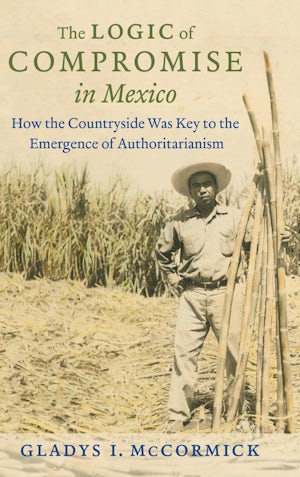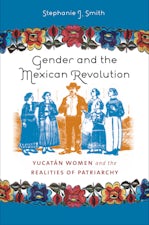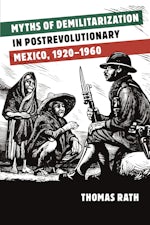The Logic of Compromise in Mexico
How the Countryside Was Key to the Emergence of Authoritarianism
By Gladys I. McCormick
300 pp., 6.125 x 9.25, 1 map, notes, bibl., index
-
Paperback ISBN: 978-1-4696-2774-8
Published: April 2016 -
E-book PDF ISBN: 979-8-8908-4936-6
Published: February 2016 -
E-book EPUB ISBN: 978-1-4696-2775-5
Published: February 2016 -
Hardcover ISBN: 978-1-4696-2894-3
Published: April 2016
Buy this Book
- Paperback $37.50
- Hardcover $99.00
- E-Book $19.99
For Professors:
Free E-Exam Copies
McCormick demonstrates how the PRI exploited this support, using key parts of the countryside to test and refine instruments of control--including the regulation of protest, manipulation of collective memories of rural communities, and selective application of violence against critics--that it later employed in other areas, both rural and urban. With three peasant leaders, brothers named Rubén, Porfirio, and Antonio Jaramillo, at the heart of her story, McCormick draws a capacious picture of peasant activism, disillusion, and compromise in state formation, revealing the basis for an enduring political culture dominated by the PRI. On a broader level, McCormick demonstrates the connections among modern state building in Latin America, the consolidation of new forms of authoritarian rule, and the deployment of violence on all sides.
About the Author
Gladys McCormick is assistant professor of history at Syracuse University.
For more information about Gladys I. McCormick, visit
the
Author
Page.
Reviews
“An excellent book and highly recommended for graduate students in history, political science, and Latin American Studies.”--Choice
"A truly groundbreaking quest for answers about the enduring power of the PRI, The Logic of Compromise in Mexico is an engaging foray into the key role of rural land relations and peasantry. Gladys McCormick's argument is innovative, bold, and well supported, and rarely have I seen such a well-conceived and thoughtful analysis of oral interviews."--Susan M. Gauss, University at Albany, SUNY
"Staking out new theoretical terrain in the study of Mexican politics, Gladys McCormick's compelling and uniquely important book offers an unprecedented, on-the-ground account of the relationships between peasants and the powerful Mexican state. Her ability to understand the experiences of peasants is original and eye-opening, and the book is inspired in its melding of biography and regional history."--Jeffrey W. Rubin, Boston University




